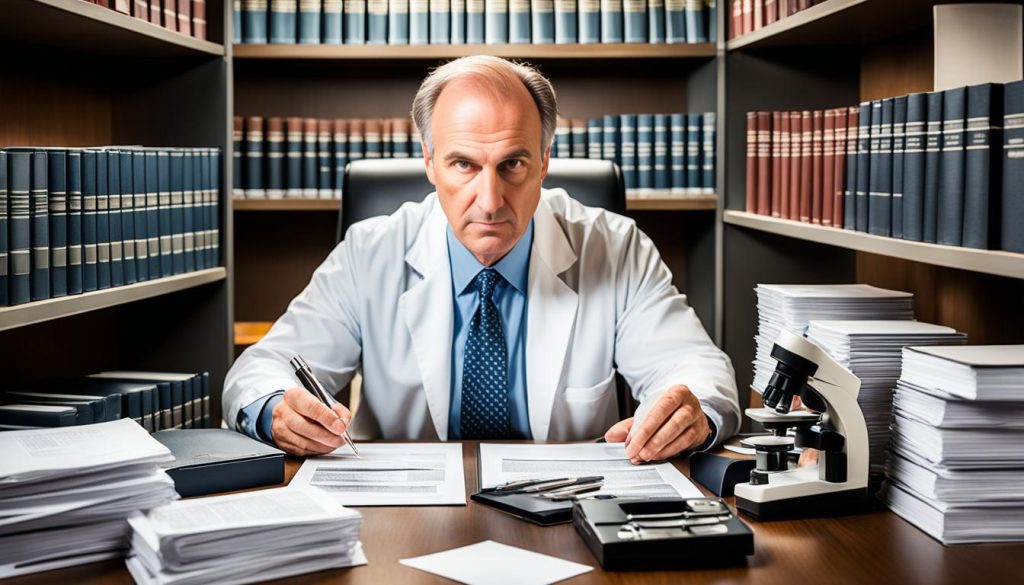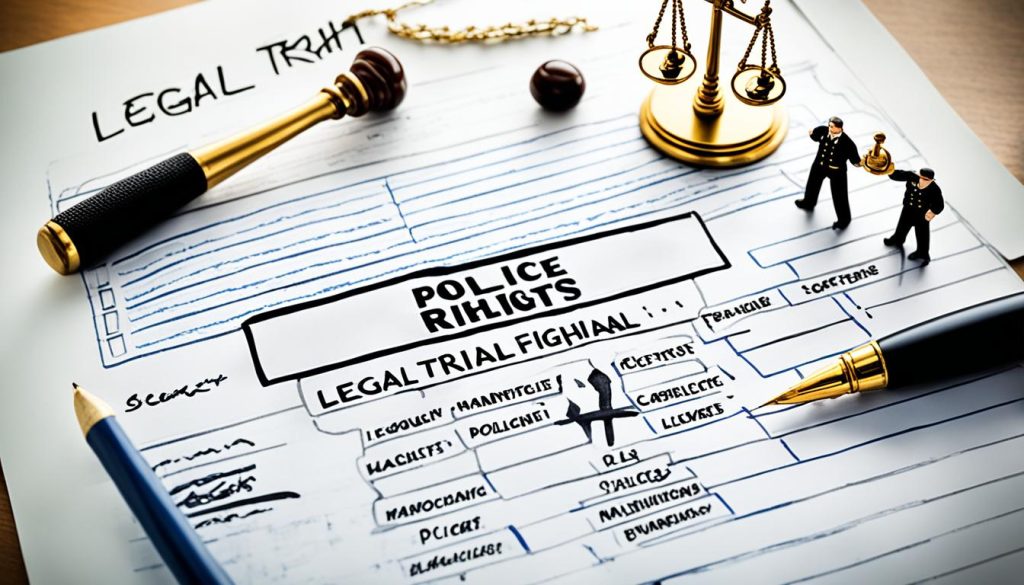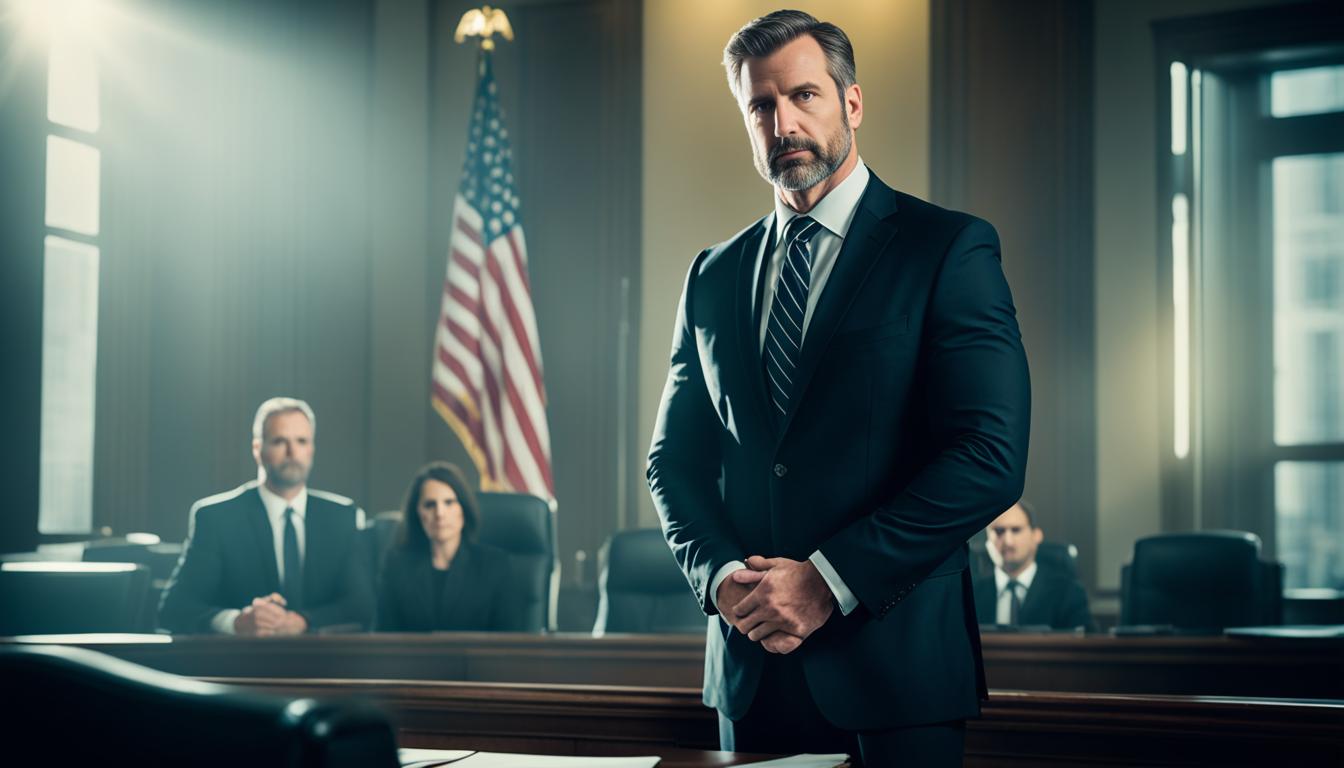The Role and Impact of Criminal Defense Attorneys in Upholding Legal Rights and Fair Trials
Criminal defense attorneys, also known as criminal lawyers or defense lawyers, are instrumental in ensuring a fair and just legal process for individuals facing criminal charges. These skilled legal professionals play a vital role in upholding justice and protecting the rights of the accused in the criminal justice system.
Whether it is a DUI attorney defending against a drunk driving charge, an assault defense attorney representing someone accused of assault, or a drug crime lawyer defending an individual facing drug-related charges, criminal defense attorneys are committed to providing their clients with effective legal representation.
Throughout the legal process, criminal defense attorneys undertake various responsibilities to protect their clients’ rights and ensure fair trials. They investigate the prosecutor’s case meticulously, questioning witnesses, reviewing physical evidence, and identifying applicable defenses. Their expertise and dedication help safeguard the fundamental principle of the presumption of innocence.
In this article, we will delve into the essential roles that criminal defense attorneys play in the criminal justice system, examining how they investigate the prosecutor’s case, question witnesses, review physical evidence, identify applicable defenses, and uphold the presumption of innocence.
Key Takeaways:
- Criminal defense attorneys are crucial in upholding justice and protecting the rights of the accused.
- They investigate the prosecutor’s case, question witnesses, review physical evidence, and identify applicable defenses.
- Their role is integral in ensuring a fair trial and upholding the presumption of innocence.
- Criminal defense attorneys specialize in various areas, including DUI, assault, drug crimes, domestic violence, and white-collar crimes.
- By fulfilling their responsibilities, criminal defense attorneys play a vital role in the administration of justice.
Investigating the Prosecutor’s Case
One of the primary duties of a criminal defense attorney is to thoroughly investigate the case presented by the prosecutor. They critically examine the evidence and arguments to identify weaknesses or inconsistencies. This involves reviewing police reports, witness statements, and other evidence to build a strong defense strategy. The goal is to uncover the truth and ensure the protection of the accused’s rights.
“By investigating the prosecutor’s case, a skilled defense attorney can uncover inconsistencies or weaknesses that can be used to challenge the evidence presented against the accused.”
Examining the evidence and arguments presented by the prosecutor is a crucial step in building a strong defense. By meticulously reviewing all available information, a criminal defense attorney can identify any inconsistencies, biases, or flaws that may exist in the prosecutor’s case. This investigation allows the defense attorney to develop an effective defense strategy based on the strengths and weaknesses of the evidence.
Identifying Weaknesses and Inconsistencies
During the investigation, the defense attorney focuses on identifying potential weaknesses in the prosecutor’s case. This may include inconsistencies in witness testimonies, conflicting evidence, or procedural errors. By carefully analyzing the evidence from different angles, the defense attorney can craft compelling arguments to challenge the credibility and reliability of the prosecution’s case.
Moreover, the defense attorney may conduct their own independent investigation to gather additional evidence or identify any missed leads or potential defense witnesses. They may consult with expert witnesses or hire private investigators to uncover crucial information that can strengthen the defense and cast doubt on the prosecutor’s case.
Inconsistencies in the prosecution’s case play a fundamental role in creating reasonable doubt. By raising doubts regarding the reliability of the evidence and arguments presented, the defense attorney aims to establish a plausible alternative narrative that supports their client’s innocence or diminishes the prosecution’s case. This investigative process is vital in safeguarding the rights of the accused and ensuring a fair trial.
Building a Strong Defense Strategy
After investigating the prosecutor’s case and pinpointing weaknesses and inconsistencies, the defense attorney devises a robust defense strategy. They utilize the gathered evidence and craft compelling arguments aimed at disproving the prosecution’s claims or establishing alternative explanations.
The defense attorney may present alibis, challenge the reliability of witnesses or evidence, or argue that the accused’s actions were justified under specific circumstances. By strategically analyzing the strengths and weaknesses of the prosecutor’s case, the defense attorney can construct a persuasive defense that enhances the chances of a favorable outcome for the accused.
Questioning Witnesses
Questioning witnesses is a critical component of a criminal defense attorney’s role. Whether during pre-trial interviews or depositions, this process allows the defense attorney to assess witness credibility, uncover biases, and gather information that supports the defendant’s case.
Through skillful questioning, defense attorneys aim to challenge the reliability of the prosecution’s witnesses and cast doubt on their testimony. Cross-examination plays a pivotal role in exposing inconsistencies, inaccuracies, or ulterior motives that may impact the witness’s credibility.
By meticulously examining the witness’s statements, the defense attorney can identify gaps, contradictions, or alternative explanations for the events in question. These discrepancies, when exposed, can weaken the prosecution’s case and strengthen the defense’s argument.
Furthermore, questioning witnesses goes beyond merely challenging their credibility; it serves as an opportunity to gather information that supports the defendant’s innocence. By extracting relevant details and clarifying the sequence of events, the defense attorney can build a robust defense strategy.
Additionally, skilled defense attorneys use their tactics to elicit favorable information from witnesses that bolsters the defendant’s case. This might involve drawing attention to alternate suspects, uncovering evidence of bias or prejudice, or revealing situations where the witness’s perspective may be skewed.
Ultimately, the questioning of witnesses is an essential part of the defense attorney’s duties. Effective cross-examination and deposition techniques can significantly impact the outcome of a trial, providing crucial evidence that supports the defendant’s innocence, introduces reasonable doubt, or exposes the prosecution’s weaknesses.
Example of Witness Cross-Examination
Defense Attorney: Ms. Johnson, can you confirm that you were not wearing your glasses at the time of the incident?
Witness: Yes, that’s correct. I didn’t have my glasses on.
Defense Attorney: So, without your glasses, your visual acuity is significantly compromised?
Witness: Yes, everything is blurry without them.
Defense Attorney: And yet, you claim to have clearly identified my client as the perpetrator from a considerable distance?
Witness: Well, I recognized their voice and distinctive clothing.
Defense Attorney: But wouldn’t it be reasonable to suggest that your identification may have been influenced by these factors, given your impaired vision?
Witness: I suppose it’s possible…
Witness Questioning Checklist
| Objectives | Questions to Consider |
|---|---|
| Evaluate credibility | Are there inconsistencies in their statements? Do they have a motive to lie or bias? |
| Identify strengths and weaknesses | Can their testimony be corroborated or challenged? How do they handle cross-examination? |
| Establish alternative explanations | Are there other possible interpretations of the events? Was the witness’s perspective compromised? |
| Collect supporting evidence | Can the witness provide information that supports the defendant’s case or casts doubt on the prosecution? |
| Expose bias or prejudice | Do the witness’s personal beliefs or relationships impact their objectivity? Can their perspectives be called into question? |
Conducting Physical Evidence Review
As part of their comprehensive defense strategy, criminal defense attorneys are responsible for conducting thorough reviews of physical evidence. This critical step involves a meticulous examination of crime scenes, analysis of forensic evidence, and consultation with experts in various fields to ensure a comprehensive understanding of the case at hand.
When reviewing physical evidence, criminal defense attorneys may visit crime scenes to gain firsthand insights into the circumstances surrounding the alleged crime. By immersing themselves in the physical environment, they can uncover crucial details that may have been overlooked or misrepresented.
Additionally, the analysis of forensic evidence plays a pivotal role in the defense’s efforts to challenge the prosecution’s case. From DNA analysis to ballistics, digital forensics, and more, defense attorneys collaborate with specialized experts who provide key insights and interpretations of the evidence. This collaboration enables them to identify potential flaws or inconsistencies that can cast doubt on the accuracy and reliability of the prosecution’s claims.

Consulting with Forensic Experts
Experts in their respective fields play an invaluable role in assisting criminal defense attorneys during physical evidence review. By consulting with forensic experts, defense attorneys can gain expert opinions and interpretations of the evidence, strengthening their defense strategies.
“Forensic experts bring a wealth of knowledge and expertise to the table. They can provide in-depth analysis and interpretation of scientific evidence, offering alternative explanations or casting doubt on the prosecution’s theories,” says John Smith, a seasoned criminal defense attorney.
By leveraging the insights and expertise of these professionals, defense attorneys can challenge the validity of the evidence, highlight any gaps or inconsistencies, and raise reasonable doubt in the minds of the judge and jury.
The Impact of Physical Evidence Review
The thorough review of physical evidence by criminal defense attorneys can significantly impact the outcome of a case, particularly in trials where scientific or technical data holds substantial weight. Defense attorneys armed with detailed knowledge about the evidence are positioned to craft compelling arguments that challenge the prosecution’s claims, leading to favorable outcomes for their clients.
Moreover, the ability to analyze and challenge physical evidence demonstrates the attorney’s commitment to defending their client’s rights and ensuring a fair trial. By scrutinizing the evidence presented by the prosecution, defense attorneys can uncover flaws, expose biases, and contribute to the pursuit of justice.
| Benefits of Conducting Physical Evidence Review | Examples |
|---|---|
| Identification of inconsistencies in witness testimonies | Challenging the credibility of prosecution witnesses |
| Uncovering potential tampering or mishandling of evidence | Raising doubts about the reliability of the prosecution’s case |
| Providing alternative explanations for the evidence presented | Creating reasonable doubt in the minds of the jury |
Identifying Applicable Defenses
One of the most strategic roles of a criminal defense attorney is to identify and employ applicable legal defenses. When constructing a strong defense, defense attorneys consider various defense strategies, including:
- Alibi: Proving that the defendant was not present at the scene of the crime during the alleged incident.
- Self-defense: Arguing that the defendant acted in self-defense to protect themselves from harm.
- Duress: Demonstrating that the defendant committed the crime under the threat or coercion of another person.
- Entrapment: Establishing that law enforcement induced the defendant to commit the crime they would not have otherwise committed.
Each defense strategy requires a deep understanding of applicable legal principles and precedents. Criminal defense attorneys thoroughly analyze the circumstances of the case and determine the most effective defense strategy based on the available evidence and the specific legal context. By leveraging their expertise, defense attorneys can present compelling arguments that challenge the prosecutor’s case and protect the rights of their clients.

Note: The image above illustrates the importance of identifying applicable defenses in a criminal defense case.
Upholding the Presumption of Innocence
A criminal defense attorney plays a crucial role in upholding the presumption of innocence, one of the cornerstones of the fair trial process. The presumption of innocence ensures that every accused individual is considered innocent until proven guilty in a court of law. This fundamental principle not only safeguards the rights of the defendant but also fosters public confidence in the justice system.
Throughout the criminal justice process, the defense attorney tirelessly works to protect the rights of their client and uphold the presumption of innocence. Their efforts include:
- Challenging Prejudice: The defense attorney aims to confront and challenge any bias or prejudiced attitudes that may impact the defendant’s right to a fair trial. They diligently work to ensure that the jury or judge maintains an impartial mindset and judges the case solely based on the evidence presented.
- Fighting for Fairness: Defense attorneys examine all aspects of the case, including the credibility and admissibility of evidence, to ensure that their client receives a fair trial. They raise objections, present counterarguments, and challenge any unfair or prejudicial tactics employed by the prosecution.
- Presenting a Strong Defense: A skilled defense attorney will thoroughly investigate the case, scrutinize the evidence, and build a robust defense strategy. They may call expert witnesses, cross-examine the prosecution’s witnesses, and present alternative explanations or interpretations of the evidence to create reasonable doubt.
By upholding the presumption of innocence, the defense attorney not only protects the rights of the accused but also helps maintain public confidence in the fairness and integrity of the legal system. When the rights of the defendant are respected and a fair trial is ensured, the entire community benefits from a justice system that upholds the principles of justice and protects against wrongful convictions.
| Benefits of Upholding the Presumption of Innocence | Diminishing Prejudice | Instilling Public Confidence |
|---|---|---|
|
|
|
Conclusion
In conclusion, criminal defense attorneys play a vital and indispensable role in the administration of justice. They are instrumental in safeguarding the legal rights of individuals facing criminal charges and ensuring fair trials. Through their diligent efforts, they investigate the prosecutor’s case, meticulously evaluate evidence, question witnesses, and identify relevant defenses.
The importance of criminal defense attorneys cannot be overstated. They uphold the fundamental principle of the presumption of innocence, ensuring that defendants are treated fairly and have the opportunity to challenge the evidence against them. By tirelessly advocating for their clients, criminal defense attorneys contribute to the integrity and fairness of the legal system.
With their extensive legal knowledge, strategic thinking, and dedication to their clients, criminal defense attorneys serve as the bulwark against wrongful convictions and protect the rights and freedoms of every individual. Their impact goes beyond individual cases; they uphold justice and maintain public confidence in the legal system as a whole.
FAQ
What does a criminal defense attorney do?
A criminal defense attorney investigates the prosecutor’s case, questions witnesses, reviews physical evidence, identifies applicable defenses, and upholds the presumption of innocence.
How does a criminal defense attorney investigate the prosecutor’s case?
A criminal defense attorney critically examines the evidence and arguments presented by the prosecutor, looking for weaknesses or inconsistencies.
What is the role of a criminal defense attorney in questioning witnesses?
A criminal defense attorney questions witnesses during pre-trial interviews and depositions to assess their credibility, uncover biases, and gather information that supports the defendant’s case.
How does a criminal defense attorney review physical evidence?
A criminal defense attorney may visit crime scenes, analyze forensic evidence, and consult with experts in various fields to understand and challenge the physical evidence presented by the prosecution.
What is the importance of identifying applicable defenses in a criminal defense case?
A criminal defense attorney identifies and employs legal defenses such as alibi, self-defense, duress, or entrapment, depending on the specific case and through a deep understanding of legal principles and precedents.
How does a criminal defense attorney uphold the presumption of innocence?
A criminal defense attorney ensures that the defendant receives a fair trial, free from prejudice, and with a full opportunity to challenge the evidence against them, thereby upholding the fundamental principle of ‘innocent until proven guilty’.
